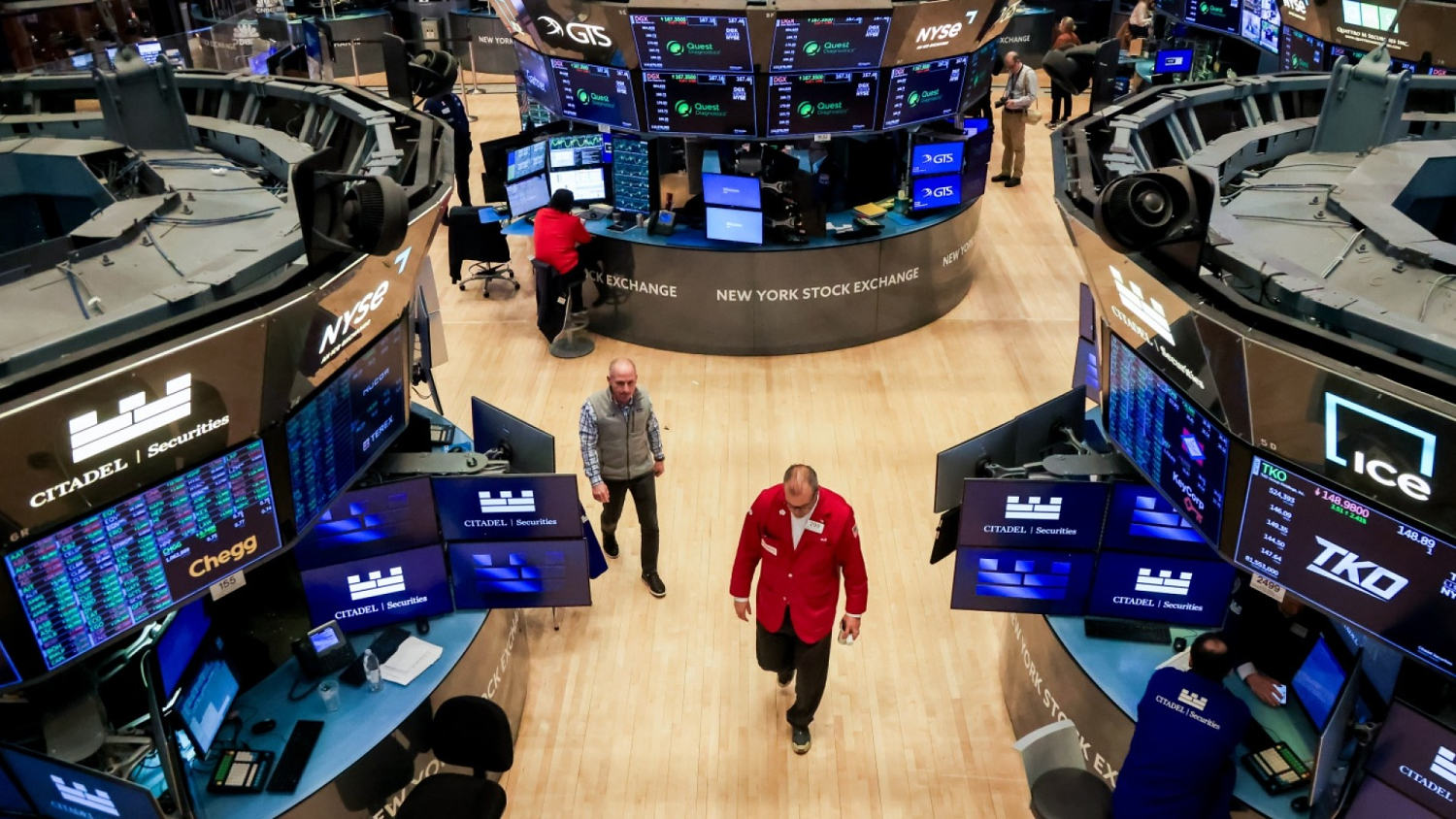The Top 10 AI-Led Contributions to Society According to AI
Warning: Attempt to read property "user_login" on bool in /home/productaccess/dfyblogs.productaccess.in/wp-content/themes/motocom/vendor/motocom-functions.php on line 1285
Warning: Attempt to read property "last_name" on bool in /home/productaccess/dfyblogs.productaccess.in/wp-content/themes/motocom/vendor/motocom-functions.php on line 1286

By Richard D. Harroch and Dominique A. Harroch
Artificial Intelligence (AI) has steadily integrated itself into all of our modern lives, driving progress in ways that were even recently unimaginable. From revolutionizing how we approach medicine to streamlining energy systems and advancing scientific research, AI is no longer the technology of the future—it is a force reshaping the present.
The promise of AI lies in its capacity to address challenges that have long stymied human ingenuity. It has opened doors to solutions in healthcare, education, climate action, and countless other fields, enabling us to tackle issues with unprecedented speed and efficiency. These innovations aren’t just technical achievements; they’re tools for building a more equitable, informed, and sustainable world.
This article explores ten groundbreaking contributions AI has made to society, using insights and research assistance from ChatGPT, spanning a wide range of fields. By examining these areas, we aim to highlight how AI is influencing our everyday lives and paving the way for a future filled with possibility.
1. AI in Personalized Medicine
AI has introduced a new era of healthcare by tailoring treatments to individual patients. Through analysis of genetic data, medical history, and lifestyle factors, AI can identify specific therapies likely to be effective for each person. This approach is especially critical in oncology, where it enables precise cancer treatments that minimize harm to healthy cells.
- Relevance: Reduces trial-and-error in treatments, improving recovery rates and reducing healthcare costs. AI platforms like IBM Watson Health integrate these capabilities into clinical workflows, expanding accessibility.
- Main Researchers: Significant work is being conducted at the University of California, San Francisco (UCSF), and IBM Watson Health.
- Impact: Provides customized healthcare solutions, improving patient outcomes and advancing precision medicine.
2. AI-Assisted Drug Development
Drug discovery, a traditionally time-consuming and expensive process, is being revolutionized by AI. By analyzing vast molecular datasets, AI identifies promising compounds in record time. Its role in developing COVID-19 vaccines highlighted its ability to accelerate research and save lives.
- Relevance: Streamlines drug development timelines, making life-saving treatments available faster. AI played a pivotal role in identifying vaccine candidates within weeks during the pandemic.
- Main Researchers: Efforts led by Insilico Medicine and Deep Genomics, based in Baltimore, Maryland, and Toronto, Canada.
- Impact: Reduces costs and increases efficiency in the pharmaceutical industry, saving millions of lives globally.
Sign up for our free weekly AllBusiness.com newsletter here
3. AI in Space Exploration
AI is enhancing our understanding of the cosmos by automating spacecraft systems and analyzing astronomical data. National Aeronautics and Space Administration’s (NASA) Perseverance rover uses AI to navigate Mars, uncovering vital information about the planet’s geology and potential for life.
- Relevance: Advances our ability to study and explore extraterrestrial environments. AI-enabled telescopes like Kepler have discovered over 5,000 exoplanets.
- Main Researchers: NASA in Washington, D.C., and the European Space Agency (ESA) in Paris, France.
- Impact: Supports autonomous space missions and deepens our understanding of the universe.
4. AI in Climate Change Solutions
AI is a critical tool in the fight against climate change. It helps optimize renewable energy systems, predicts extreme weather events, and monitors environmental changes. By mapping global methane leaks and stabilizing energy grids, AI contributes directly to reducing greenhouse gas emissions.
- Relevance: Advances sustainable development and reduces environmental impact. AI-driven insights are helping stabilize wind and solar energy outputs, improving grid efficiency.
- Main Researchers: Google DeepMind in London, United Kingdom, and Stanford University in Palo Alto, California.
- Impact: Promotes renewable energy adoption and strengthens climate action strategies.
5. AI-Enhanced Education
AI is reshaping education with adaptive learning platforms that cater to individual student needs. By analyzing performance data, these platforms personalize instruction, making education more effective and engaging. They also bridge educational gaps in underserved areas by delivering high-quality content remotely.
- Relevance: Expands access to education and enhances learning outcomes. United Nations Educational, Scientific and Cultural Organization (UNESCO) is using AI to provide educational tools to underserved regions globally.
- Main Researchers: Carnegie Mellon University in Pittsburgh, Pennsylvania, and UNESCO in Paris, France.
- Impact: Reduces global education inequalities and boosts literacy rates.
6. AI and Quantum Computing Breakthroughs
AI is accelerating progress in quantum computing by optimizing algorithms and modeling complex systems. These advancements are solving problems in cryptography, materials science, and logistics that were previously thought insurmountable.
- Relevance: Combines AI and quantum computing to solve problems across science and industry. AI-driven quantum research has paved the way for breakthroughs in secure communications.
- Main Researchers: IBM Research in Armonk, New York, and Google Quantum AI in Mountain View, California.
- Impact: Unlocks new possibilities for secure data management and complex problem-solving.
7. AI in Economic Modeling
Economic forecasting has become more accurate using AI, which analyzes vast datasets to predict market trends, manage resources, and design effective fiscal policies. This has helped governments implement targeted stimulus packages and stabilize economies post-pandemic.
- Relevance: Improves resource allocation and strengthens economic stability. AI accurately forecasted economic recoveries following COVID-19, aiding policymakers.
- Main Researchers: Massachusetts Institute of Technology (MIT) in Cambridge, Massachusetts, and the London School of Economics in London, United Kingdom.
- Impact: Enhances economic resilience and supports equitable policy design.
Build your email list, personalize campaigns, and boost sales—try Campaigner now
8. AI-Assisted CRISPR Technology
AI has advanced CRISPR by increasing accuracy in gene editing and minimizing unintended effects. These improvements have accelerated breakthroughs in genetic disorder treatments and agricultural resilience.
- Relevance: Improves precision in gene-editing technology, benefitting healthcare and agriculture. AI-powered CRISPR tools have increased crop resilience in regions facing food insecurity.
- Main Researchers: The Broad Institute in Cambridge, Massachusetts, and the University of California, Berkeley.
- Impact: Streamlines genetic research and bolsters food security globally.
9. AI for Renewable Energy Optimization
AI is enhancing the efficiency of renewable energy systems by forecasting power outputs and managing energy grids. Smart grids use AI to reduce energy waste and ensure reliable power supply during fluctuations.
- Relevance: Drives the global transition to sustainable energy sources. Some renewable energy providers report cost reductions of up to 30% due to AI optimization.
- Main Researchers: Stanford University in Palo Alto, California, and the National Renewable Energy Laboratory in Golden, Colorado.
- Impact: Improves grid reliability and accelerates the shift to clean energy.
10. AI-Driven Public Health Interventions
AI is changing the field of public health by predicting disease outbreaks, streamlining vaccination campaigns, and analyzing population health trends. It has been instrumental in managing malaria and mapping health data in vulnerable regions.
- Relevance: Enhances healthcare accessibility and preparedness. AI collaborates with the World Health Organization (WHO) to manage global health crises effectively.
- Main Researchers: WHO in Geneva, Switzerland, and Johns Hopkins University in Baltimore, Maryland.
- Impact: Saves lives and bolsters healthcare systems worldwide.
Conclusion on AI Contributions
AI is no longer an abstract concept confined to research labs; it has become an important force in addressing pressing challenges. Whether by improving healthcare outcomes, enabling sustainable energy solutions, or altering the course and focus of education, AI continues to prove its value in creating a more equitable and efficient society.
These contributions are a testament to what’s possible when technology and human ingenuity intersect. They remind us of AI’s potential to solve problems and inspire innovation across fields. As we move forward, harnessing the power of AI responsibly will be key to ensuring that its benefits reach everyone and create meaningful progress for generations to come.
Related Articles:
- The Top 10 Movies of All Time According to AI
- The Top 10 Tech Breakthroughs of All Time According to AI
- Valuations and Funding Rounds Continue to Soar for AI Companies
About the Authors
Richard D. Harroch is a Senior Advisor to CEOs, management teams, and Boards of Directors. He is an expert on M&A, venture capital, startups, and business contracts. He was the Managing Director and Global Head of M&A at VantagePoint Capital Partners, a venture capital fund in the San Francisco area. His focus is on internet, digital media, AI and technology companies. He was the founder of several Internet companies. His articles have appeared online in Forbes, Fortune, MSN, Yahoo, Fox Business and AllBusiness.com. Richard is the author of several books on startups and entrepreneurship as well as the co-author of Poker for Dummies and a Wall Street Journal-bestselling book on small business. He is the co-author of a 1,500-page book published by Bloomberg on mergers and acquisitions of privately held companies. He was also a corporate and M&A partner at the international law firm of Orrick, Herrington & Sutcliffe. He has been involved in over 200 M&A transactions and 250 startup financings. He can be reached through LinkedIn.
Dominique Harroch is the Chief of Staff at AllBusiness.com. She has acted as a Chief of Staff or Operations Leader for multiple companies where she leveraged her extensive experience in operations management, strategic planning, and team leadership to drive organizational success. With a background that spans over two decades in operations leadership, event planning at her own start-up and marketing at various financial and retail companies, Dominique is known for her ability to optimize processes, manage complex projects and lead high-performing teams. She holds a BA in English and Psychology from U.C. Berkeley and an MBA from the University of San Francisco. She can be reached via LinkedIn.
Copyright (c) by Richard D. Harroch. All Rights Reserved.
Related Posts

Technical Analysis: 4 Stocks with signs of death crossovers to keep an eye on

HDFC Bank & 3 other fundamentally strong stocks trading above 200 DMA to keep an eye on

Falling Channel Breakout: Multibagger NBFC Stock Shows Bullish Momentum on Daily Chart

4 Fundamentally strong stocks to buy for an upside potential of up to 36%; Do you hold any?


